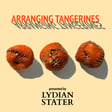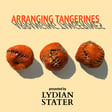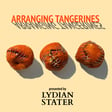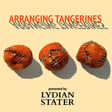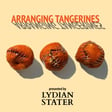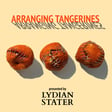
Arranging Tangerines Episode 43 - A Conversation with Kris Graves
In this week’s episode, we welcome Kris Graves (and his associate Frank Francis) to our gallery and onto the podcast to discuss a multitude of topics including life with a baby, the charm and uniqueness of Queens, the origins of Hip Hop, Graves’ early commissioned work, museums’ and cultural institutions’ feelings about NFTs, Black Lives Matter, the role that race plays in art, history, and society, working day jobs, and how NFTs can be gate keeper resistant, and what is next for Graves. Originally recorded February 13, 2023
Kris Graves (b. 1982 New York, NY) is an artist and publisher based in New York and California. Graves creates artwork that deals with societal problems and aims to use art as a means to inform people about cultural issues. Using a mix of conceptual and documentary practices, Graves photographs the subtleties of societal power and its impact on the built environment. He explores how capitalism and power have shaped countries -- and how that can be seen and experienced in everyday life. Graves also works to elevate the representation of people of color in the fine art canon; and to create opportunities for conversation about race, representation, and urban life. He photographs to preserve memory.
Graves received his BFA in Visual Arts from S.U.N.Y. Purchase College and has been published and exhibited globally, including Museum of Modern Art, New York; Getty Institute, Los Angeles; and National Portrait Gallery in London, England; among others. Permanent collections include the Metropolitan Museum of Art, Getty Institute, Schomburg Center, Whitney Museum, Guggenheim Museum, Museum of Fine Arts, Houston; Brooklyn Museum; and The Wedge Collection, Toronto; amongst others.
Frank Frances (b.1983 Columbia, SC) is a NYC-based artist whose work challenges the everyday perceptions of memories and prejudice with close studies of photography’s materiality and dynamics; he is no stranger to being both voyeur and subject.
He has shown in solo and group exhibitions domestically and internationally at Sasha Wolf Gallery, The Studio Museum of Harlem, Glasshouse, Carriage Trade and Werkstadt Graz to name a few. Reviews and features of their work have appeared in publications such as The New York Times, The New Yorker, Vice, NPR, ArtInfo, Bomblog, and Bloomberg BusinessWeek among others. He received an MFA from the School of Visual Arts. His first book Remember The South is published by Monolith Editions
https://www.instagram.com/krisgraves/
https://www.instagram.com/kgpnyc/
https://www.instagram.com/frankfrancesstudio/
